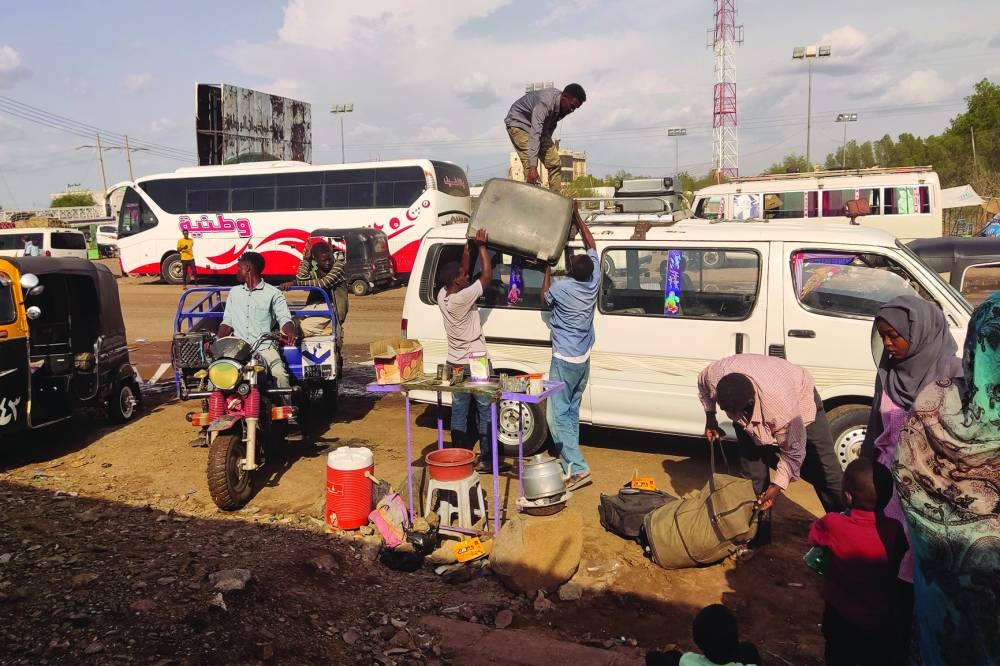Heavy fighting raged yesterday across the Sudanese capital where witnesses reported a fighter-jet being shot down and artillery and machine gun fire rocking several neighbourhoods.
“We saw pilots jumping with parachutes as the plane plunged to the ground,” said a witness in northern Khartoum who, like others, asked not to be named citing security fears.
A source from the paramilitary Rapid Support Forces said the RSF had shot down the Sudanese Armed Forces jet.
The RSF said they “arrested the pilot after he landed with a parachute”, in a statement that also accused the SAF of “heinous massacres” in greater Khartoum.
The armed forces led by Abdel Fattah al-Burhan have been at war with the RSF — led by his former deputy Mohamed Hamdan Daglo — since April 15, in a brutal conflict that has killed nearly 3,000 people and displaced millions.
A witness in Omdurman, located across the river from Khartoum’s city centre, also reported “heavy clashes using various types of weapons”. Others said they could see “air strikes in the area of the state television building”, where the RSF had launched an attack this week and fired anti-aircraft weapons yesterday.
In the capital’s east, witnesses also reported clashes with machine guns.
The army “launched rockets and heavy artillery” on RSF bases in both central and northern Khartoum, another witness reported, with houses damaged and civilians rushed to one of the few hospitals still functioning.
Medics warn the death and wounded toll from Sudan’s war is likely much higher than recorded figures, with many casualties unable to reach health facilities, two-thirds of which are out of service.
In both Khartoum and the western region of Darfur, fighting has mainly hit densely-populated neighbourhoods, with bombs falling on homes and bodies left in the streets.
There have been only brief moments of respite for civilians, most of whom are trapped and have been forced to ration water, food, electricity and medicine for close to three months.
About 2.2mn Sudanese have been displaced within the country and 645,000 have fled across borders, according to the International Organisation for Migration.

An employee at Lebanon Waste Management (LWM), a sorting facility that treats dry solid waste, receives a bag of recyclable items from a motorist, at the “Drive Throw” booth in Beirut.
